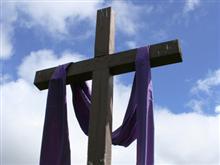
Like many of you, I’m always telling people I will pray for their health, and I mean it. I realize that every person I pray for doesn’t get his wish just because I’ve engaged the Guy upstairs in a conversation, but somehow I feel better knowing I put it in God’s hands.
So it was with interest I read Beliefnet’s interview with Dr. Harold G. Koenig, co-director of the Center for Spirituality, Theology, and Health at Duke University Medical Center, where he also serves on the faculty as Professor of Psychiatry and Behavioral Sciences, and Associate Professor of Medicine. Dr. Koenig is the author of many books, including “The Healing Power of Faith,” “Faith and Mental Health,” and “Spiritual Caregiving,” and he has been nominated twice for the Templeton Prize for Progress in Religion. He spoke with Lisa Schneider of Beliefnet about why he believes being part of a religious community can make people healthier–and happier.
To read the full interview click here. I have excerpted a few paragraphs.
A recent study suggests that praying for others does not improve their health. How do you interpret the results?
I think the results are very consistent with good science and good theology. Good science because there’s no acceptable scientific mechanism or pathway by which prayer–at least the way it was designed in this study without people knowing whether or not they were prayed for–could have any effect, and it’s good theology because God is not predictable, he’s not a part of the material universe.
It tells us nothing about the effectiveness of prayer. Do you think it’s impossible to do that?
It’s impossible for studies designed like this. God would have to be quantitative and predictable, which is ludicrous in the context of any Christian or Jewish or Islamic tradition and even within the Eastern traditions.
How do you measure God’s will for a person? Ninety-six percent of the participants in the Harvard study had someone else praying for them. We don’t know how much prayer they had, we don’t know how sincere the prayers were. None of that was taken into account, and it would be very hard to measure those things. And none of the benefits to the prayed-for group were measured after 30 days. Maybe God healed them after 30 days–we don’t know. You can see that this study is ridiculous.
Putting aside the ability to be able to prove it or not, do you believe that prayer can heal–specifically help someone, for example, recover from cancer?
Absolutely. I believe that on faith and I also believe it because I’ve seen that happen with people, including personal friends. Of course they knew they were being prayed for, by their families and their churches, and those people have had remarkable recoveries. I believe it because it says it in the scriptures that I believe in. So there’s no doubt in my mind that prayers help people–those who are prayed for and those saying the prayer.
One thing we do know is that God is good and because God is good, whatever God allows to happen or does in response to prayer has to be good. Theologically speaking it may be bad for a person to do well after coronary artery bypass surgery. It may be that if a person had some complications, he would realize his limitations, he may reach out to God, he may forgive his neighbor, he may tell his loved one that he loves them. Good things come out of difficult situations.
* Click here to subscribe to Beyond Blue and click here to follow Therese on Twitter and click here to join Group Beyond Blue, a depression support group. Now stop clicking.

